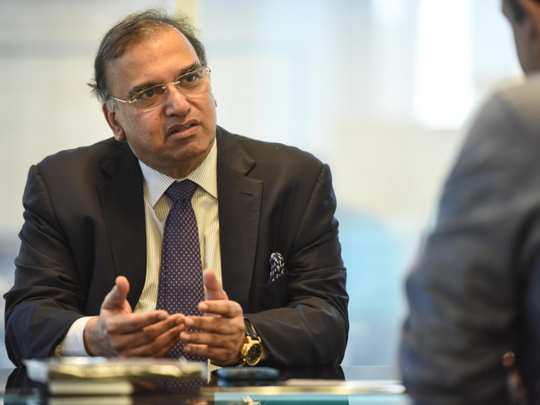
Dubai: Three UAE- and Qatar-based investors are in the running to acquire an upscale beach resort in the South Indian metropolis Chennai, according to the current owner of the property. The price tag for The Leela Palace Chennai could be in the region of Rs8 billion (Dh430 million) and likely to be finalised before March 31.
The 295-room property, spread across 6 acres, has been operating for two years and averages an occupancy of 62 per cent. At around the 68 per cent, it would reach “cash flow break even”. “Our plan is to disinvest one or two properties in our portfolio, but continue with their management on a long-term basis,” said Vivek Nair, Chairman and Managing Director of the publicly-listed Hotel Leelaventure Ltd. “We made a start by selling off our prized Goa property, in late 2015 for Rs7.5 billion.
“These are done with the intent of wiping out much of our debt by March 31 or in a worst-case scenario by midyear.” (Leela currently has nine properties in India, of which six are owned.)
High net worth UAE/Gulf investors have in recent years been quite active in acquiring hotel projects, either in full or through joint ventures with partners in India. The RP Group, which is developing mixed-used tower projects in Dubai, now owns a prime beachside hotel asset in southern India, which was earlier with the Leela Group. The latter continues to manage it. Abu Dhabi-based Lulu Group — which operates the hypermarket chain — is also building up a hospitality portfolio centred around key southern Indian cities.
“Because of our standing, all of the buyers want us to continue managing the properties, with the contracts being for at least 20 years,” said Nair.
The group is also dealing with its non-core assets, disposing of land it held in Hyderabad and a plot it owned in Bengaluru, which was sold to the Prestige Group for a residential venture. Another land disposal was in Pune. These sales would fetch around Rs4 billion.
If all of the disposals go according to plan, Leela’s loan portfolio would be trimmed significantly. A high debt burden is not exclusive to Leela alone, said Nair. “The previous Indian Government let down the hospitality industry, which is saddled with Rs200 billion of debt. About 220 hotels are like us, with non-performing assets.
“I was disheartened with the then government’s approach. More so, because they talked so much about the need to create more capacity in hotel rooms — as much as 80,000 additional rooms. That’s Rs1,800 billion of capital expenditure. They put us to making the huge investments needed to create those capacities.
“I had spoken so much with the Manmohan Singh Government about treating loans to the hospitality industry being treated on the same level as infrastructure funds. Our biggest break would be if all such loans are given extensions of 15 years.
“Some progress was made and hospitality loans were granted that status in November 2013, for a three-year term. But the catch was it was only applicable to new loans, and that meant only three hotels are currently eligible. Now that the initial three-year term is over [as of November 2016], the industry is hopeful that even existing loans can have longer tenors as opposed to the eight-year average on commercial loans.” (Currently, some flexibility has been allowed on such loans — if the full repayments are not made by 15 years, borrowers have the comfort of extending the tenor period by a further five or 10 years.)
Even with all the disposals done and those to be completed shortly, the Leela group still has quite a few aces up its sleeve. There is the flagship 260-room Leela Palace that it operates in Delhi, which since its opening in 2011 retains one of the highest occupancies in the city — at about 88-90 per cent — during the peak November to March period.
“In terms of RevPar [revenue per available room], with every location we have in India, we are the number one,” said Nair. “We paid much more than we had anticipated for the land in Delhi — Rs6.11 billion — and cost us Rs23 billion overall to develop ... but it’s been worth it. It is the most expensive hotel per room in India. Our RevPar rate there is about 20 per cent higher than the second highest in the market.
“In India’s it’s very easy to get superlative gross operating profits and unmatched anywhere in the world. In Bengaluru, our hotel [which opened in 2001] at one time we were doing 85 per cent occupancy throughout the year. And we were getting 67 per cent adjustable gross operating profit (GOP) — in Dubai, the average would be around 32-33 per cent after four years of stabilisation. In Europe, it’s even less.
“It all depends on the payroll costs ... In India, payrolls costs are still the lowest. But these days, the Bengaluru property’s adjustable GOP is about 40 per cent plus.”











